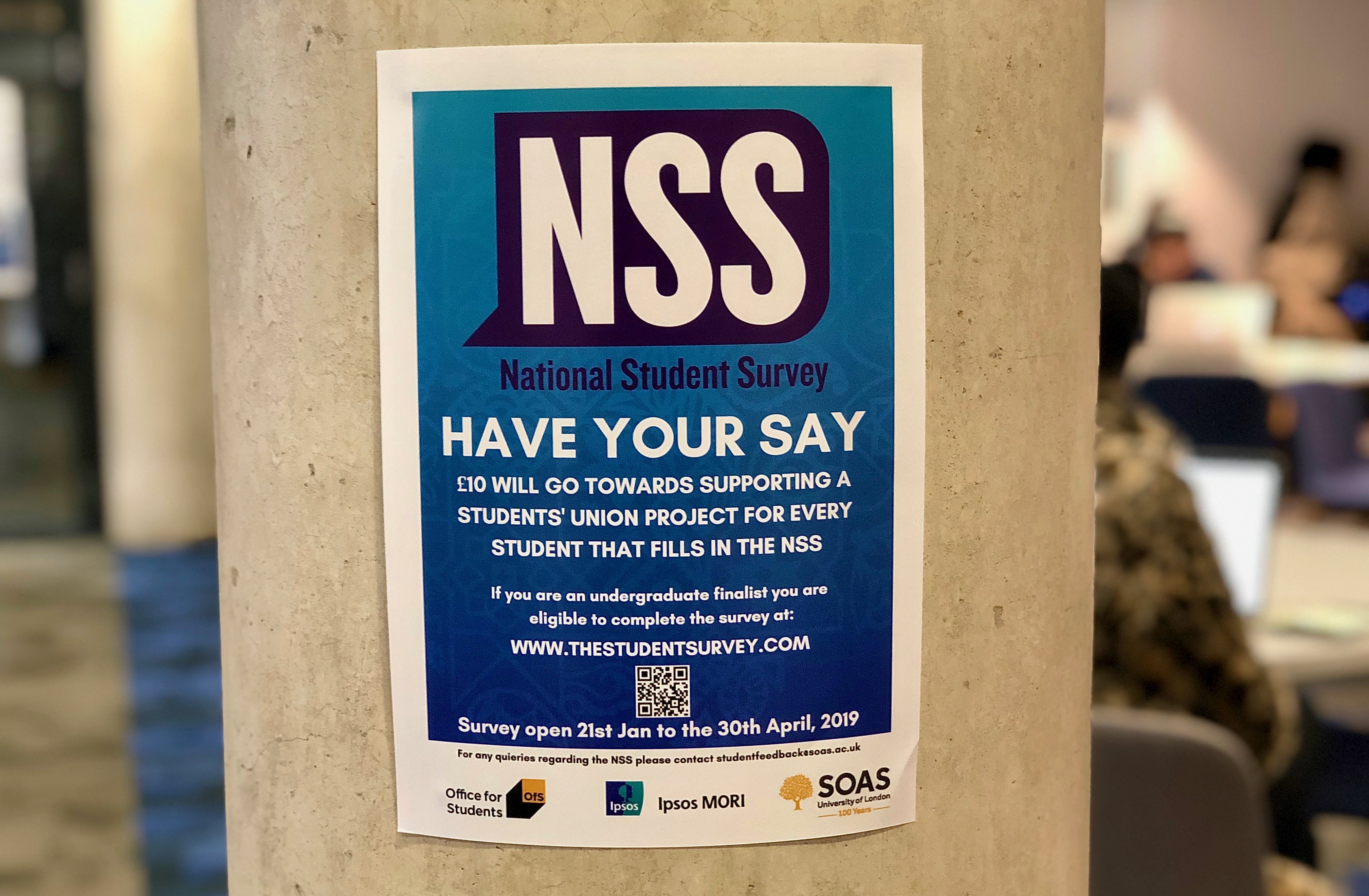Khadija Kothia, BA History
SOAS students have voted against boycotting the National Student Survey (NSS) after referendum results showed a 160 majority against boycotting the survey. The result means that SOAS Students’ Union will not be campaigning to boycott the NSS after a two-year boycott, leaving students to decide if they wish to complete the survey.
Voting was held both on-campus and online between 10 and 14 January 2019. The total vote count reached 529, with 332 students voting against the boycott, 172 supporting a boycott, and 25 abstentions.
The National Student Survey is a nation-wide questionnaire held for all final year undergraduates to fill in. It asks for their opinion regarding several factors affecting their university experience, such as resources, student voice, and teaching standards.
The survey is usually filled out during the second half of the academic year, and the results of this survey play an important part in affecting a university’s position on league tables and the decision-making process for students applying to universities in the coming year.
Despite this boycott, 52% of students still filled out the NSS, demonstrating that students, on the whole, felt differently to the UGM participants who passed the motion.
In the 2016-17 academic year, the National Union of Students (NUS) led a nationwide campaign to boycott the NSS. The boycott was held in protest of links between the NSS and Teaching Excellence Framework (TEF), which would give higher-ranked the ability to increase their tuition fees and was protested by the NUS on the grounds that this would “accelerate the marketisation of our sector, entrench inequality and damage the UK’s academic reputation”.
Following the nation-wide boycott, the TEF/NSS link was dropped, and the NUS boycott was ended.
However, a 2017-18 SOAS Students’ Union UGM motion passed another motion to boycott the NSS as a moral stand against the marketisation of higher education.
Despite this boycott, 52% of students still filled out the NSS, demonstrating that students, on the whole, felt differently to the UGM participants who passed the motion. The Students’ Union Co-Presidents stated this as the reason for holding this year’s referendum, stating that all students should have a say in how the university officially boycotts, and not just those present at the UGM.
This year, turnout reached 529, a much higher number than those present when the decision was previously made in a UGM.
Information regarding the boycott was emailed by the Students’ Union to all students, and posters were put up around the campus and an open debate was held on Thursday 10 January in the Senate House atrium, where the floor was open to students to voice their queries.
Despite low attendance, questions were asked about the boycotts impacts, particularly with regard to the university’s worrying financial position and the answers were printed and distributed across campus.
However, there still remains a concern that the information was not explained well enough, with students taking to social media to vent their frustration.
One student said: “I don’t get the NSS thing at all… Sometimes I feel SU just expect us to go along with what they say without providing any information lol and frankly I am scared to ask at this point.”
The results of this year’s NSS survey will likely have an impact on SOAS’ financial situation. Last month, The SOAS Spirit revealed that the university was facing a deficit of £7.1million, following a 40% fall in undergraduate intake over the past two years. The fall was seen, in part, to be the result of a drop in league tables, with SOAS falling so far down that the university is no longer included in scholarship programmes awarded by some governments due to the declining position in league tables. Examples include scholarship schemes in Norway, Indonesia, Malaysia, Singapore and Russia.
The decision to reject the boycott could have a long-term impact on improving the university’s league table position, as a higher number of students filling in the survey could possibly lead to an increase in SOAS’ league table position, potentially improving the university’s financial position.
Image Credits: Khadija Kothia
